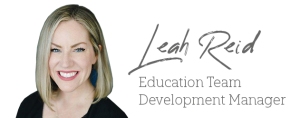*This blog is part of the June Thought Leader newsletter


DEI, DEIB, diversity, equity, inclusion, belonging, social justice, accessibility…no doubt you’ve heard these terms lately, and with increasing frequency.
Maybe you’ve waded in the shallow end of the DEIB pool to explore more, or possibly you dove head-first into the deep end. No matter your experience, we’re here to tell you that these are not just buzzwords; they are critical factors for success. Accounting firms that prioritize DEIB will inevitably foster innovation, attract top talent and create a culture that embraces diversity while supporting the firm’s visions and goals.
What is DEIB?
For those still wading in the shallow end, here’s a quick overview of DEIB.
D: Diversity refers to the similarities and differences among people, perspectives and experiences within a group or organization. Diversity includes, but is not limited to:
- Gender
- Gender identity and expression
- Ethnicity
- Race
- Age
- Generation
- Disability
- Sexual orientation
- Culture
- Religion
- Marital status
- Parental status
- Socio-economic status
- Appearance
- Language and accent
- Mental health
- Education
- Geography
- Nationality
- Work style and experience
- Job role and function
- Thinking style
- Personality type
E: Equity is about fairness and justice. It’s also about taking deliberate actions to acknowledge and address the historical disadvantages and systemic barriers that hinder opportunities for individuals and disrupt their well-being. Equality means treating everyone the same; equity involves treating everyone differently depending on their unique needs and circumstances. Think of equity as leveling the playing field for all.
I: Inclusion creates an environment where individuals feel valued, respected and empowered to contribute their unique talents and perspectives. Inclusivity ensures equitable access to resources and opportunities for all. It also enables people and groups to feel safe, respected, heard, engaged, motivated and valued for who they are.
B: Belonging emphasizes the need for individuals to feel a sense of connection, acceptance and security within the workplace, enabling them to bring their authentic selves to work. While belonging is tricky to measure, its presence or absence is felt. What is the energy of the room when your group comes together? How has that shifted or changed now that the room might be more proverbial or virtual?
“Fitting in is about assessing a situation and becoming who you need to be to be accepted. Belonging, on the other hand, doesn’t require us to change who we are; it requires us to be who we are.” – Brene Brown
Why DEIB matters in accounting
Accountants play a crucial role in guiding businesses through financial decisions, ensuring compliance and acting as a trusted business advisor. While the field of accounting may appear detached from DEIB issues at first glance, it has a significant impact on an organization’s ability to achieve equitable and inclusive outcomes. Here are a few reasons why DEIB matters in accounting:
- Client relationships: Clients come from diverse backgrounds. Understanding their unique needs and perspectives is essential for providing effective financial advice and support. Embracing DEIB helps build trust and rapport with clients, enhancing the quality of professional relationships.
- Innovation and team culture: Diverse teams foster innovation by bringing together varied perspectives, experiences and approaches to problem-solving. Accountants who value DEIB can contribute to the creation of more effective financial strategies and solutions that cater to a diverse range of client needs.
- Compliance and risk management: DEIB is not only about promoting fairness within the organization, but also mitigating risks. By considering the potential impact of financial decisions on different groups and ensuring compliance with relevant laws and regulations, accountants can help organizations avoid legal and reputational risks associated with discrimination or exclusion.
- Ethical considerations: DEIB aligns with the fundamental principles of integrity, objectivity and professional behavior that underpin the accounting profession. Accountants have an ethical responsibility to consider the potential biases and inequalities within financial systems and ensure fair and transparent practices.
Understanding and embracing the importance of DEIB is step one. Once you feel comfortable, begin mapping small steps to integrate new practices into your firm. Think of a single drop into the ocean rather than a big wave!
In today’s interconnected and ever-evolving world, there are priorities, strategies and social initiatives that, when done right, will enable you to hire a diverse staff, support the firm’s overall vision goals and position your firm as trusted advisors to an ever-evolving diverse book of clients.
Stay tuned for next month’s Culture Club Thought Leader article when we dive deeper into small action steps you can take to integrate DEIB practices into your firm!
